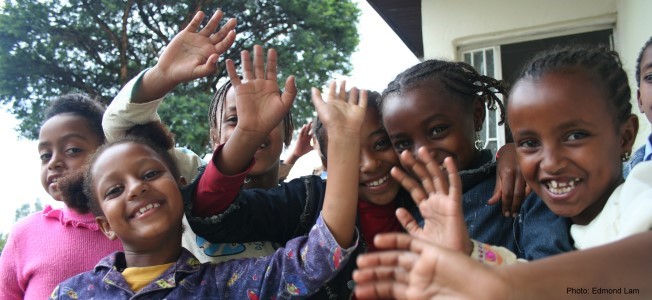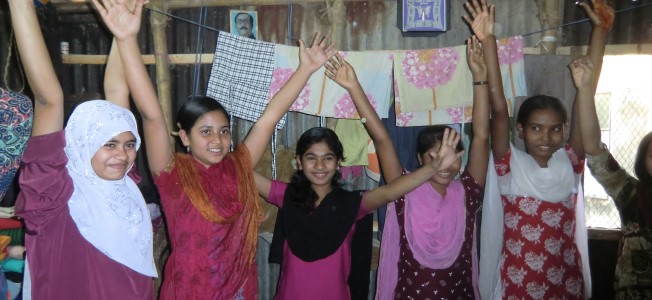[ ‘SHARE’ Nov-Dec 2012 – Care for Children ~ ‘Join Hands Join Hearts’ ] STEP INTO THE WORLD
What dreams do children have? Alem from Ethiopia dreams of having three meals a day, going to school and owning a pair of shoes.
Alem’s family faces a difficult life. Many households are slum dwellers, and some children cannot afford sufficient food or education because their parents are separated or have died from illness.
CEDAR’s partner Addis Ababa Guenet Church (AAGC) distributes food and daily supplies, provides medical services and education to about 200 children in need, and teach older ones a skill. Further, AAGC encourages parents to attend self-help groups to learn money saving and management, and increase family income by starting their own businesses with small loans.
With the help of AAGC, Alem is now in Grade 8, well fed and clothed. Are you willing to make a donation so that more children like Alem can have their dreams fulfilled?
HK$500> enables one parent to attend self-help group, learn to save money and basic skills.
HK$200> meets a child’s basic monthly expenses, such as school, food, clothes and medical support.
Other Methods of Payment
- Cheque payable to ‘CEDAR FUND’
- Deposit to HSBC A/C No. 600-385678-001, enclosing with the Pay-in slip
- Autopay (only applicable to regular fixed donations), enclosing with a completed Autopay Authorisation Form (Download: WORD or PDF)
- Visa/ Master Card
Download Donation Form
Please send a completed Donation Form, enclosing with cheque or pay-in slip, to CEDAR FUND, G.P.O. BOX 3212, HONG KONG.
[1] CEDAR is an approved charitable institutions and trusts of a public character under section 88 of the Inland Revenue Ordinance. Please click Inland Revenue Department website to check for details.
[2] Donations over $100 are tax deductible in Hong Kong with our receipts.
[3] Please DO NOT fax any donation information.










